Amino Acids for Healthier Skin and Hair
Maintaining healthier skin and hair with amino acids
Amino acids help keep your skin moist
Our skin is very delicate, and its condition can make us look younger or older than our actual age.
A major determinant of skin health is something called natural moisturizing factor (NMF).
Skin has a very thin outer membrane called the stratum corneum that acts as a barrier to prevent moisture from escaping. NMF plays an important role in helping the stratum corneum retain moisture. When NMF is depleted, the ability of the stratum corneum to retain moisture is impaired, and the skin becomes dry and flaky.
In fact, more than half of the NMF in the stratum corneum is made up of amino acids. Amino acid supplementation has been proven to be beneficial to the beauty and health of your skin.
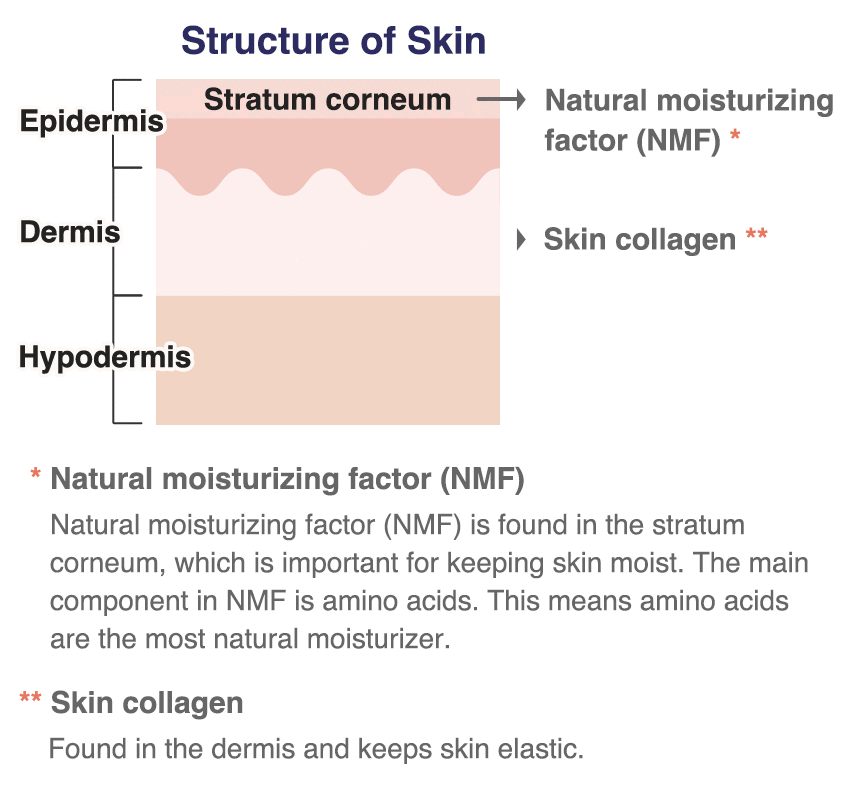
Amino acids play a key role in moisturizing the skin
Aging, UV radiation, atopic dermatitis and other skin conditions, and even sudden temperature changes when moving between indoors and outdoors can all harm our skin by reducing moisture in the stratum corneum. This simultaneously reduces the level of amino acids in this outmost layer of skin.
The amino acids that make up NMF include serine, alanine and glycine. When a formula containing a mixture of these amino acids is applied to the skin, it penetrates deep into the stratum corneum, delivering effective moisturization.
To measure the penetration of amino acids into the stratum corneum, we carried out a test in which, after applying an amino acid mixture to the skin, samples were taken from the stratum corneum using the tape-stripping method. This method consists of applying strips of adhesive tape in succession to the same skin site, and measuring the amount of amino acids in the skin cells adhering to each of the tape strips after removal from the skin site.
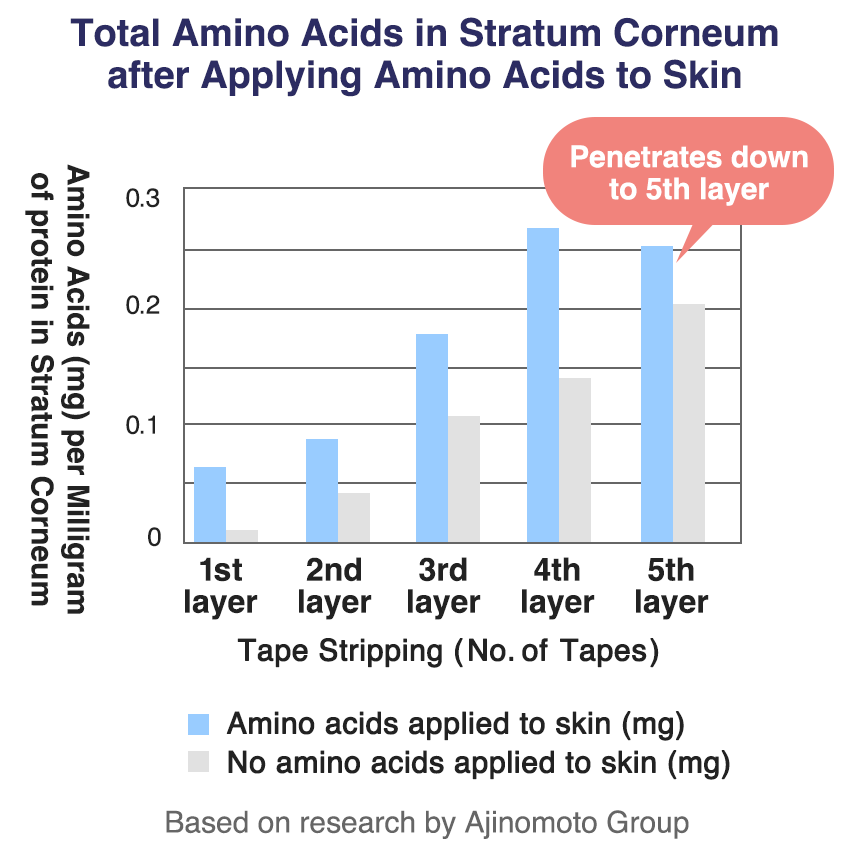
Amino acids make up the collagen that enhances the skin's beauty
Collagen is the main structural protein found in skin and other connective tissues. Made up of 17 amino acids, including glycine and alanine, it is recognized as a beauty-enhancing ingredient that gives skin firmness and elasticity. Let’s look at where these amino acids come from.
Using digestive enzymes, your body breaks down dietary protein in the stomach and duodenum, conventing them into peptides, which are short chains of amino acids. These peptides then move on to the small intestine, where they are further broken down into individual amino acids and absorbed by the body.
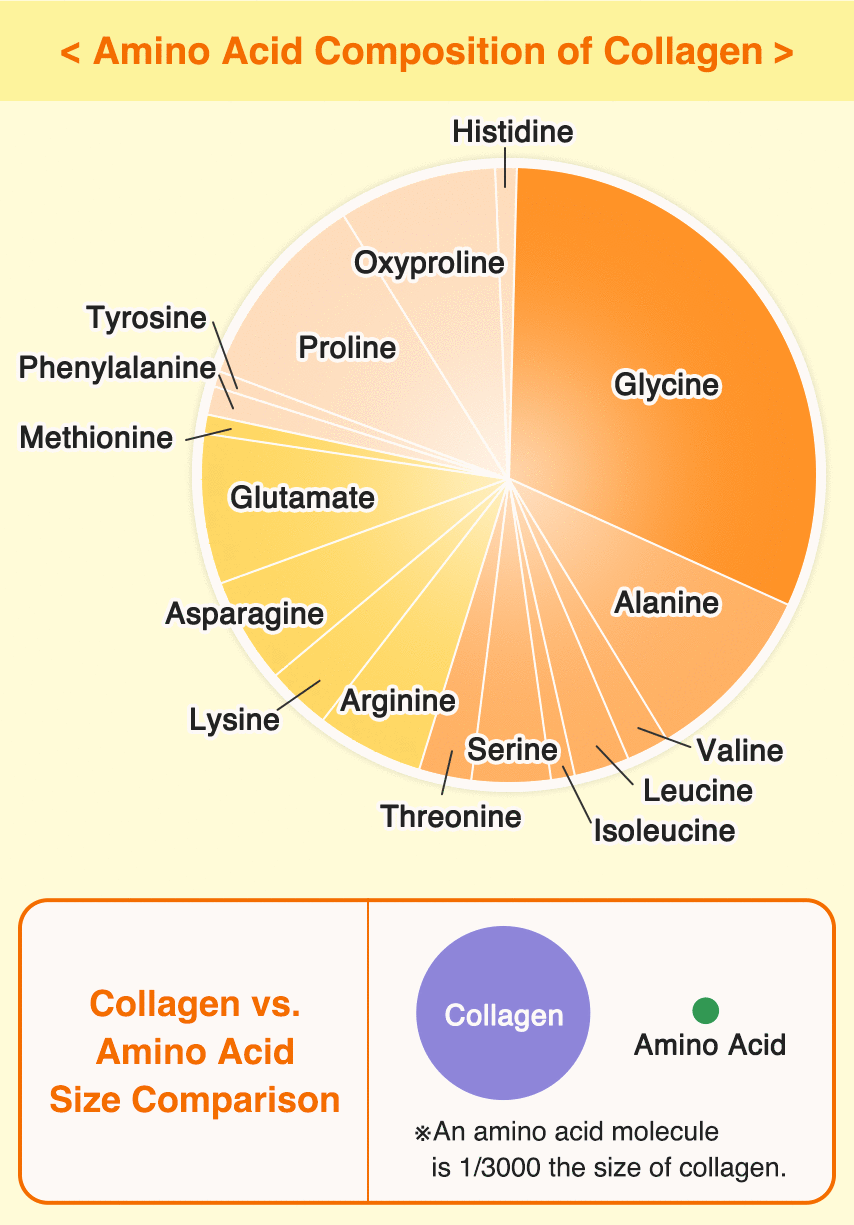
Amino acids help repair damaged hair
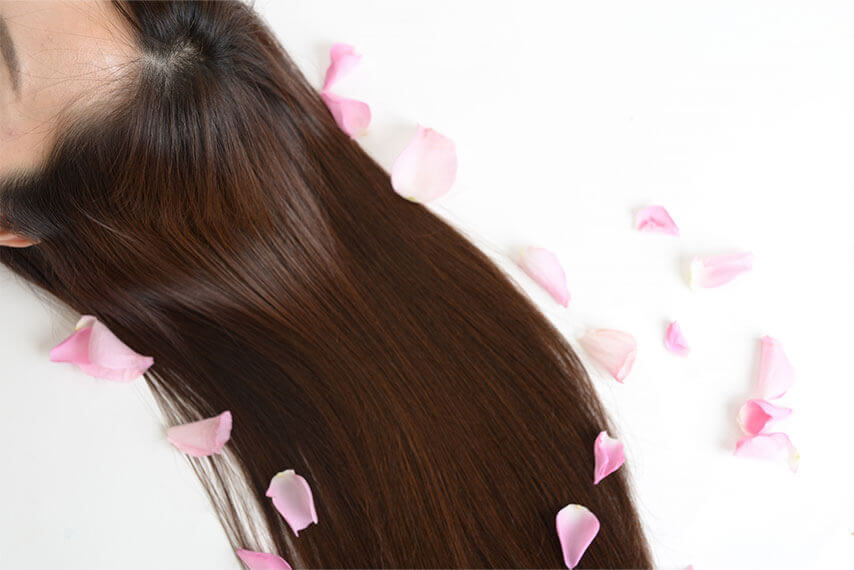
Many personal care products such as shampoos, conditioners, and body washes advertise the fact that they contain amino acids. This is because products formulated with certain amino acids can help the skin and hair retain moisture.
Moisture retention is just as important for hair as it is for skin. The outermost part of the hair shaft is the cuticle, which plays an important role in retaining moisture. The amino acids that make up hair cuticles work to retain moisture.
More and more people are coloring their hair nowadays. Coloring agents and bleach can damage the hair, especially the cuticles. Dull and dry hair is a sign of severe cuticle damage and a lack of amino acids.
Using shampoos, conditioners, and treatments that contain certain amino acids helps to promote moisture retention and keep hair from breaking. In short, amino acid can help you achieve smoother, silkier hair.
Amino acids are gentle on your skin
Soaps, cosmetics, and hair care products made with certain amino acids are hypoallergenic and gentle on your skin and hair. If you wash your hands with regular soap every 20 minutes, after ten washes they will start to feel dry and rough. But if you use an amino acid-based soap or detergent instead, your hands will experience almost no dryness or roughness even after ten washes.
Skin is naturally somewhat acidic with a pH level of between 5.0 and 6.0. Washing your hands repeatedly with alkaline soap increases the alkalinity of your skin. This is the main reason why regular soap can cause rough skin. Amino acid-based soaps and detergents, however, cleanse your skin while maintaining natural pH levels.
Find out more
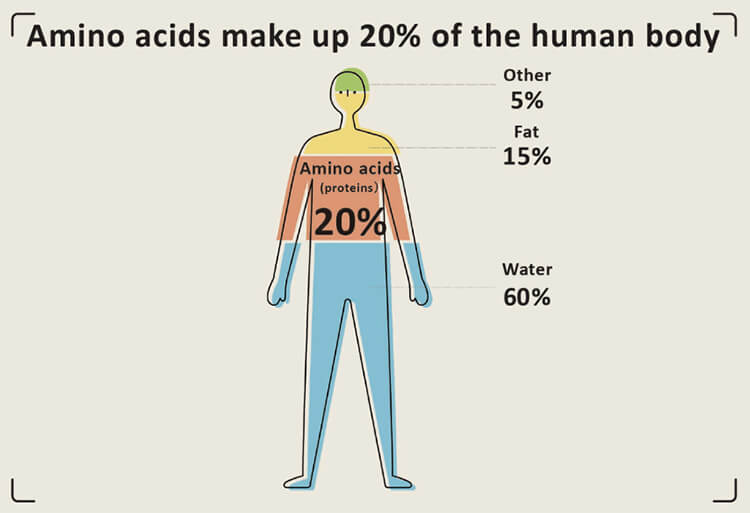
Amino acids make up 20% of the human body.
To learn more, click the following link.

The Ajinomoto Group’s vision for 2030 is to become a solution-providing group of companies for food and health issues.
Content you may like
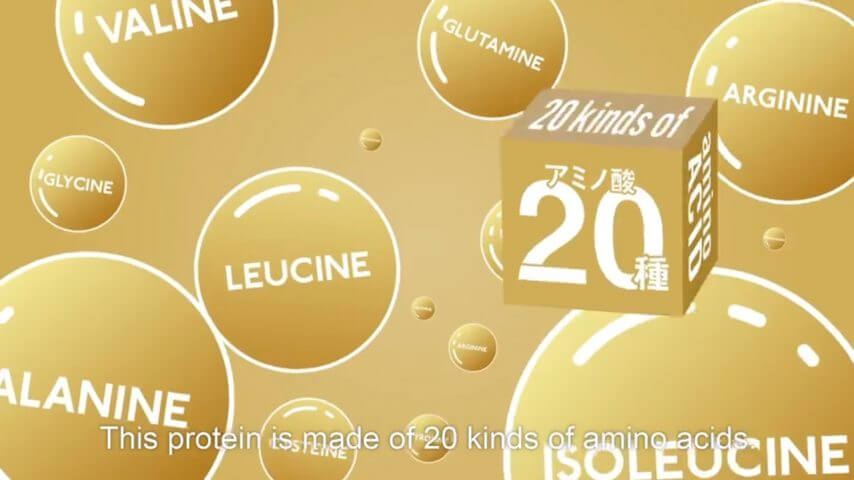
Video : Amino Acids for Better Sports Performance
Amino Acids for Better Sports PerformanceExplains how amino acids improve sports performance

Amino Acids for Healthy Aging
Leveraging amino acids to extend healthy life expectancy Amino acids are important for addressing loss of muscle mass as we ageAs we get older, we ...


